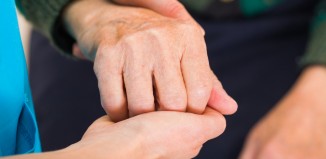NASDDDS Announces Second Installment of Adaptive Strategies Video Series
The National Association of State Directors of Developmental Disabilities Services (NASDDDS) has announced the second installment of the Adaptive Strategies Video Series. The Dialectical Behavior Therapy (DBT) series was written and led by the Missouri Department of Mental Health and a stellar group of professionals from that state. The project has been an enormous undertaking and a true labor of love by professionals and clinicians in both Missouri (DBT series) and Louisiana (CBT series). We want to particularly highlight staff from Missouri since inadvertently not providing them appropriate credit in our original announcement. A special thank you to Dr. Sharon Robbins, Dr. Lucas Evans, Dr. Jessica Sergio, and Dr. Brandy Baczwaski for their incredible contributions to this body of work currently positioned to make a significant impact on the experiences of people with I/DD nationally. We would also like to thank Dr. Angeline Stanislaus, Chief Medical Director at the Missouri Department of Mental Health, along with Jessica Bax, Director of the Missouri Division of Developmental Disabilities, and Valerie Huhn, Director of the Missouri Department of Mental Health, for their leadership and support of this project.
We would also be remiss not to take a moment to mention the team from Louisiana who led the work on the first Adaptive Strategies series, Cognitive Behavioral Therapy (CBT). We would like to thank Julie Foster-Hagan, Assistant Secretary at the Office for Citizens with Developmental Disabilities at the Louisiana Department of Health for her leadership and support. We are also incredibly grateful to Dr. Brandi Kelly and Dr. Tab Bounds for their innovative vision and immense contributions to this project.
Despite long-held beliefs that people with intellectual and/or developmental disabilities (I/DD) may not benefit from mental health treatment, we know that people with I/DD can successfully utilize integrated medical, mental, and behavioral healthcare (Ervin, Williams, and Merrick, 2014). NASDDDS is pleased to announce the second installment of its Adaptive Strategies video series featuring specific interventions and treatments highlighting modifications and adaptations for people with I/DD.
People with I/DD experience behavioral and physical health issues at rates higher than the general population and can benefit from the same evidence-based interventions that are used for people without I/DD. This second installment in the video series, developed in collaboration with Louisiana’s Office for Citizens with Developmental Disabilities, will focus on modifying Dialectical Behavior Therapy (DBT) for people with I/DD.











